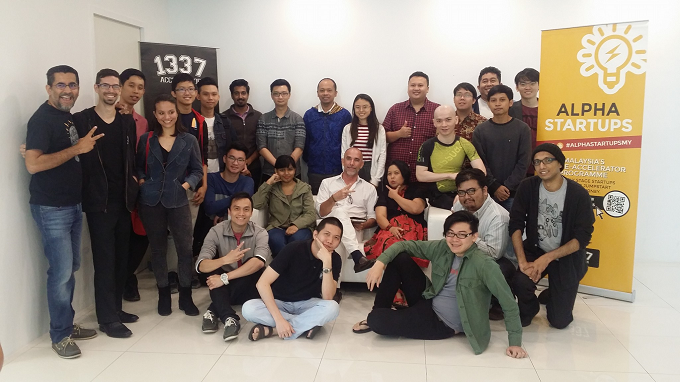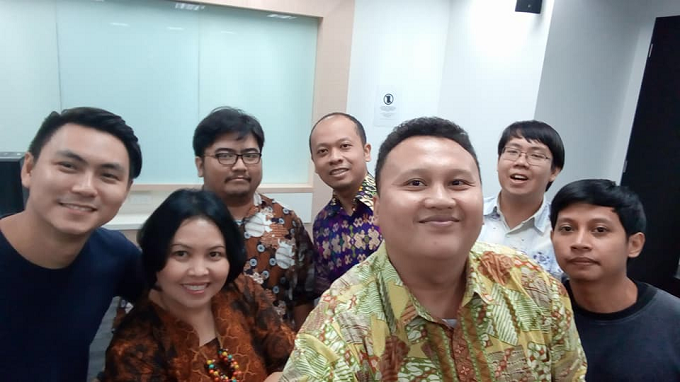Taking the plunge as an indie games studio
By Chong Jinn Xiung June 19, 2017
- One need not join triple-A company to start a career in game development
- Sheer perseverance and willingness to learn will help drive through the process

FOR every successful blockbuster game, be it Call of Duty, Mario or Pokemon Go, there are independent game studios that tirelessly toil at releasing their passion projects for the world to play and enjoy.
These dedicated few are the dreamers – and aspiring movers and shakers – of the gaming world that that are no different than the scrappy startups in the digital world. The Davids pitted against the Goliaths of the gaming industry, so to speak.
Digital News Asia (DNA) spoke to three individuals who decided to take the plunge and set up their own studios. We wanted to get to the nuts and bolts to find out just what it takes to be an indie game developer.
Getting their starts
One common misconception newcomers to the industry have is that one needs to join a big triple-A studio in order to get into the game industry. That couldn’t be further from the truth according to DreamTree Games’ director Tan Zhi Wei.
“Indie game developers can make pretty cool games in a very small team,” he said adding that he was inspired by other Malaysian indie game studios like Kureichii’s founder P’ng Yi Wei
Tan didn’t immediately start his own studio after graduating from college “I spent two years working in another game studio, taking my time to understand the industry and learning the world of startups to prepare myself,” he said.
Once the timing was right and he felt confident enough to take on the challenge, he invited two partners to join him to launch DreamTree Games in late 2016.
Similarly, Why Creative president Lim Shan Fei’s passion in games was cultivated early on having been a gamer himself and he spent a good part of a decade readying himself to launch his own studio.
Lim attributes his own experience of playing games like Final Fantasy and Diablo as the main sources of inspiration in his desire to making games.
Sometimes however, the inspiration to start a studio comes from the unlikeliest of situations. Working as a librarian Riris Marpaung never imagined that she would be pulled into the games industry.
Having worked together on many events with her fellow co-founder Dodick Zulaimi Sudirman they would eventually launch Gambreng Games an independent game studio in Indonesia.
“Games development was something I never knew before when I was focused on my librarianship for the past 20 years. My interest grew as I found the field to be full of creativity and innovation,” said Riris who is a perfect example to illustrate that you can never be too old to try something new.
Riris and Dodick decided to quit their full-time jobs to focus on Gambreng Games in 2013. They would later go on to diversify their business operations to develop games for clients as a service through Gundu Productions and specialise in developing PC games with another brand called GameChanger Studio.
%20Cham%20Wei%20Chuan%2C%20%20Xteven%20Gan%20and%20Tan%20Zhi%20Wei.png)
Facing the challenges
In the early days of setting up a studio, indie game developers usually face a variety of different challenges before their studios are fully up and running.
Why Creative’s Lim recalled his challenge finding game coders when he was starting out.
“It was not to say that there weren’t any around but I didn’t know many coders within my social circles. Most of the time, I had to solve all the technical problems on my own,” he said.
Fortunately, his coding problem was resolved after he joined Alpha Startups, a pre-accelerator program by 1337 Ventures that linked him with coders not just from Malaysia but from Indonesia too.
While a big part of developing games involves having the technical knowledge and expertise, most developers working in indie game studios do not have a background in business and finance.
For DreamTree Games’ Tan, the challenge wasn’t about attracting funding but more about how to effectively run a studio as a business and get a return on investment for the work done.
“A good product without a good marketing strategy is a recipe for disaster,” declares Tan, recalling the challenges faced in creating brand awareness for their first game Uri.
Retaining talent proved to be one of the challenges Riris faced during the early days of Gambreng Games. Apart from Riris and Dodick, the studio was founded with five other students from the university they worked in.
However, one by one the students left to further their studies and pursue different careers. Though there have been regular changes in the studio’s personnel over the last two years, Riris feels that their ranks have stabilised as they have managed to retain several programmers and visual artists.

Aspiring for great things
Choosing the right platform to develop a game is like setting the course or direction for the studio. Factors like the budget, technical know-how and expertise all play a part in deciding if a studio wants to develop for a mobile or PC audience.
To Lim, the disparity of challenges on both mobile and PC are identical but the choice of game genre has a greater impact. For example, a multiplayer game with 3D graphics is more challenging to develop as compared to a casual 2D single player game.
“Choosing to develop for mobile or PC all depends on the game mechanics and user experience that we want to create. Currently, the game that we are developing, Iteno is a touchscreen puzzle game using numbers that is ideal for mobile platforms,” he said.
DreamTree Games is also approaching mobile gamers with its 2D side-scrolling game Uri. “As an indie game studio, the PC and mobile platforms are easier for us to access and distribute as there is limited access to console development in the region,” Tan explains.
Both Why Creative and DreamTree Games are looking beyond developing mobile games. In fact, they are aiming to develop their next games for the PC platform.
“From a studio point of view, Why Creative is now looking at expanding the company and to further develop a second mobile game prototype into a full game. We also look forward to starting work on our first PC game following that,” said Lim on the studio's aspiration to become an internationally recognised indie game studio in a few year’s time.
Tan derives joy from reading player feedback after they have played his game. It inspires him to continue to develop cool new fun ideas for games.
Similarly, Riris enjoys the development process and seeing the game through its conceptual stage to the visual, sound and eventual marketing strategy employed to promote the game.
She has a particular interest in the educational games her studio has made, citing a music game that has helped Indonesian children learn national traditional songs of the country.
“At this moment, I am working on a game about an Indonesian tale that will help children to read from an early age,” she says.
Ed Note: Catch the emerging games from 10 indie game developers that Malaysia Digital Economy Corporation (MDEC) will be showcasing at HotShotz from July 22-23 at KDU University College, Glenmarie campus. Purchase your tickets here.
ACER, Digi, Sony Interactive Entertainment Hong Kong Limited Singapore Branch (SIES) and MDEC are proud sponsors with Lazada as E-commerce Partner, VR Lab as VR Partner, KDU University College as Venue Host and with Astro’s EGG gaming channel and Indonesia’s viva.co.id as Media Partners.
For more technology news and the latest updates, follow us on Facebook, Twitter or LinkedIn.
Related Stories:
Cosplay and gaming - a symbiotic relationship
Weraku Games: From zero to hero
Gattai Games takes horror to another level


